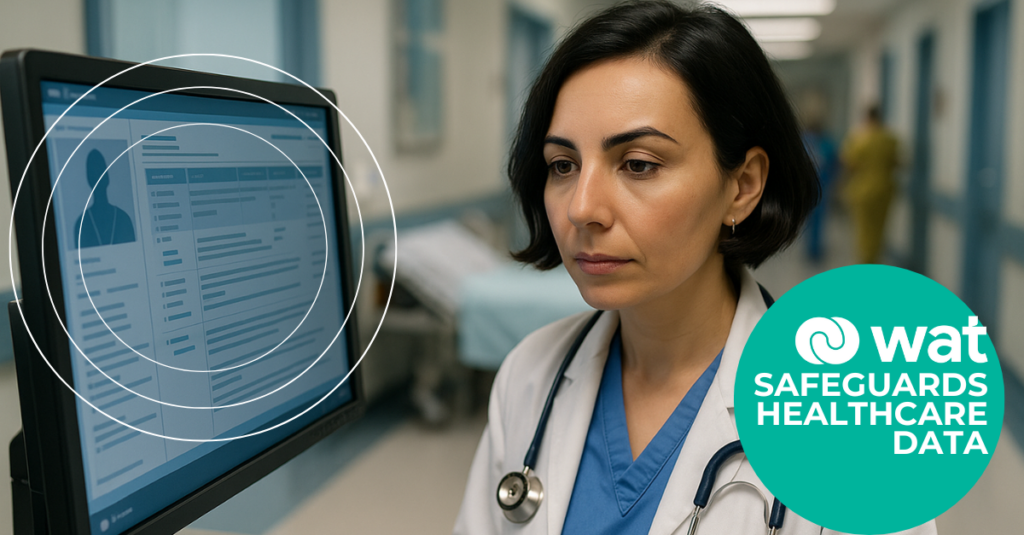In today’s digital healthcare environment, data security is a top priority. Electronic Health Records (EHR), diagnostic tools, and medical devices generate vast amounts of sensitive data. Yet, as these technologies age or become obsolete, improper disposal can become a major vulnerability.
Secure e-waste management is not just an environmental concern, it is essential for protecting sensitive patient data, preventing data breaches, and maintaining compliance with regulations such as HIPAA. Let’s explore how healthcare providers can strengthen data security by adopting proper e-waste practices.
The Growing Threat of Healthcare Data Breaches
Healthcare systems are prime targets for cyberattacks. Old medical equipment, such as computers, imaging machines, or mobile devices, can store sensitive data long after they have been decommissioned. If not securely wiped or destroyed, these devices can expose confidential patient records.
A 2020 U.S. Department of Health and Human Services report highlighted that millions of patients are impacted annually by breaches, many stemming from improperly discarded electronics. The risk is real and growing, making secure disposal a necessity, not a choice.
How E-Waste Management Protects Healthcare Data

Secure e-waste management is the first line of defense for sensitive data. Here’s how:
1. Data Destruction and Erasure
One of the most critical steps in secure e-waste management is ensuring that any device containing patient data is properly wiped or destroyed. Simple deletion of files or reformatting the device is not sufficient, as this data can still be recovered using specialized tools. Instead, healthcare organizations must implement data destruction methods that ensure complete data elimination, including:
- Degaussing: Magnetic disruption that makes storage media unreadable.
- Physical Destruction: Shredding or crushing devices to eliminate access
- Data Erasure Software: Multi-pass overwriting that ensures no data can be recovered.
2. Compliance with HIPAA Regulations
HIPAA, the U.S. law that governs the privacy and security of health information, mandates that healthcare providers take measures to protect patient data from unauthorized access, including when disposing of electronic devices. The HIPAA Security Rule specifically requires that healthcare organizations implement proper procedures for disposing of electronic Protected Health Information (ePHI) in a manner that prevents data breaches.
Failure to comply with HIPAA regulations can lead to severe penalties, including hefty fines and legal consequences. By adopting secure e-waste management practices, healthcare organizations can ensure compliance with HIPAA and other data protection regulations, reducing the risk of breaches and safeguarding patient trust.
3. Safe Recycling of Medical Devices
When medical devices are no longer in use, they often contain valuable materials such as metals, plastics, and other components. Proper recycling of these devices not only helps reduce e-waste but also ensures that any stored patient data is securely removed. Accredited e-waste recycling companies follow stringent data destruction protocols to ensure that any data on recycled devices is completely wiped.
Additionally, these companies help healthcare organizations avoid environmental hazards by ensuring that materials are recycled responsibly and not sent to landfills, where they could leak harmful chemicals into the environment.
4. Reducing the Risk of Insider Threats
One of the most overlooked risks in data security is the possibility of insider threats. Healthcare organizations may dispose of outdated devices in-house or hand them over to untrained staff or unauthorized third-party vendors. If the proper data destruction procedures aren’t followed, sensitive patient data may be exposed or misused.
By working with certified e-waste disposal companies that specialize in healthcare data security, organizations can reduce the risk of insider threats. These companies ensure that only authorized personnel handle the data destruction process and that all actions are documented for auditing purposes.
5. Peace of Mind and Patient Trust
Patients place a great deal of trust in healthcare organizations to protect their personal health information. Secure e-waste management helps healthcare providers demonstrate their commitment to patient privacy and data security. By adopting best practices for data destruction and working with trusted e-waste disposal vendors, healthcare providers can offer peace of mind to patients knowing that their information is being safeguarded even after equipment reaches the end of its life.
Why This Matters More Than Ever

As the healthcare industry continues to embrace digital technologies, the need for secure e-waste management becomes increasingly important. The improper disposal of outdated medical devices poses a significant risk to patient privacy and data security. Healthcare organizations must implement comprehensive e-waste management practices that include secure data destruction, compliance with regulations like HIPAA, and working with certified e-waste disposal vendors.
By prioritizing the secure disposal of outdated medical devices, healthcare organizations not only protect sensitive patient data but also ensure compliance with legal requirements and maintain patient trust. Ultimately, investing in proper e-waste management is a crucial step toward safeguarding healthcare data in a digital world.
